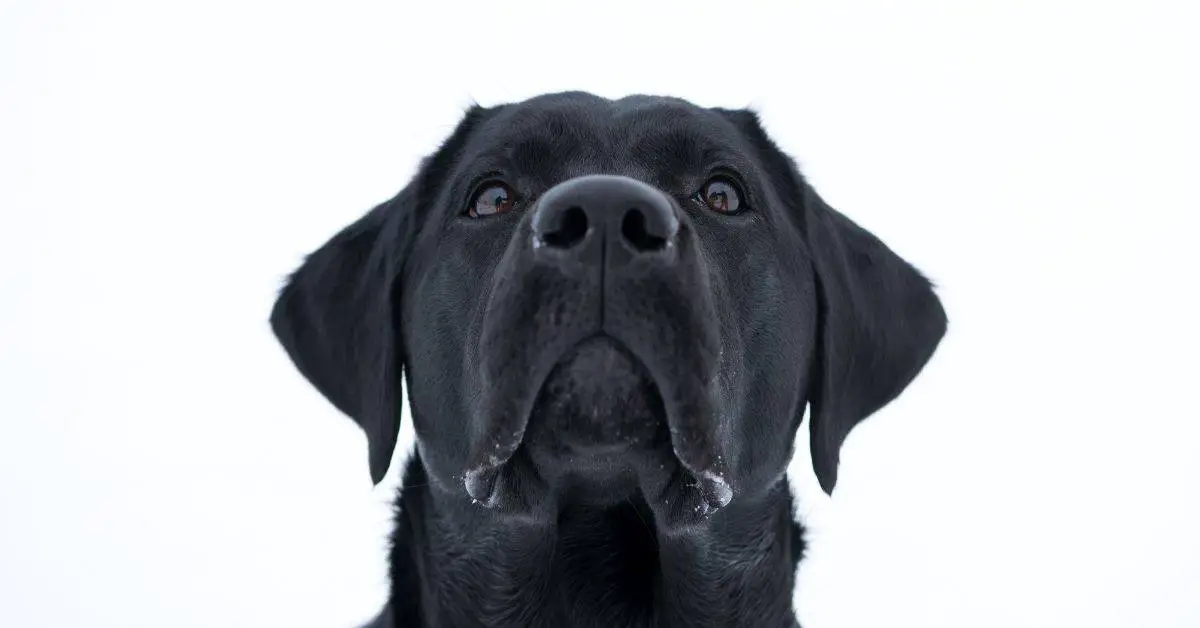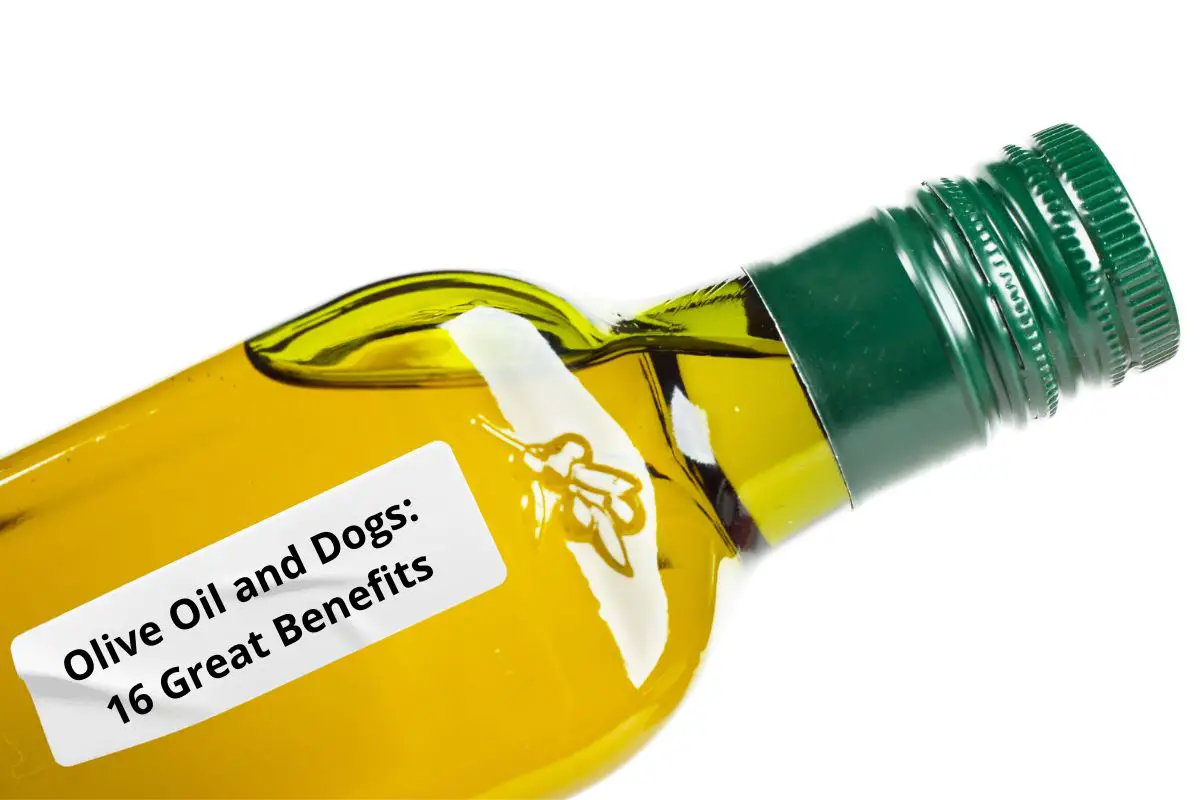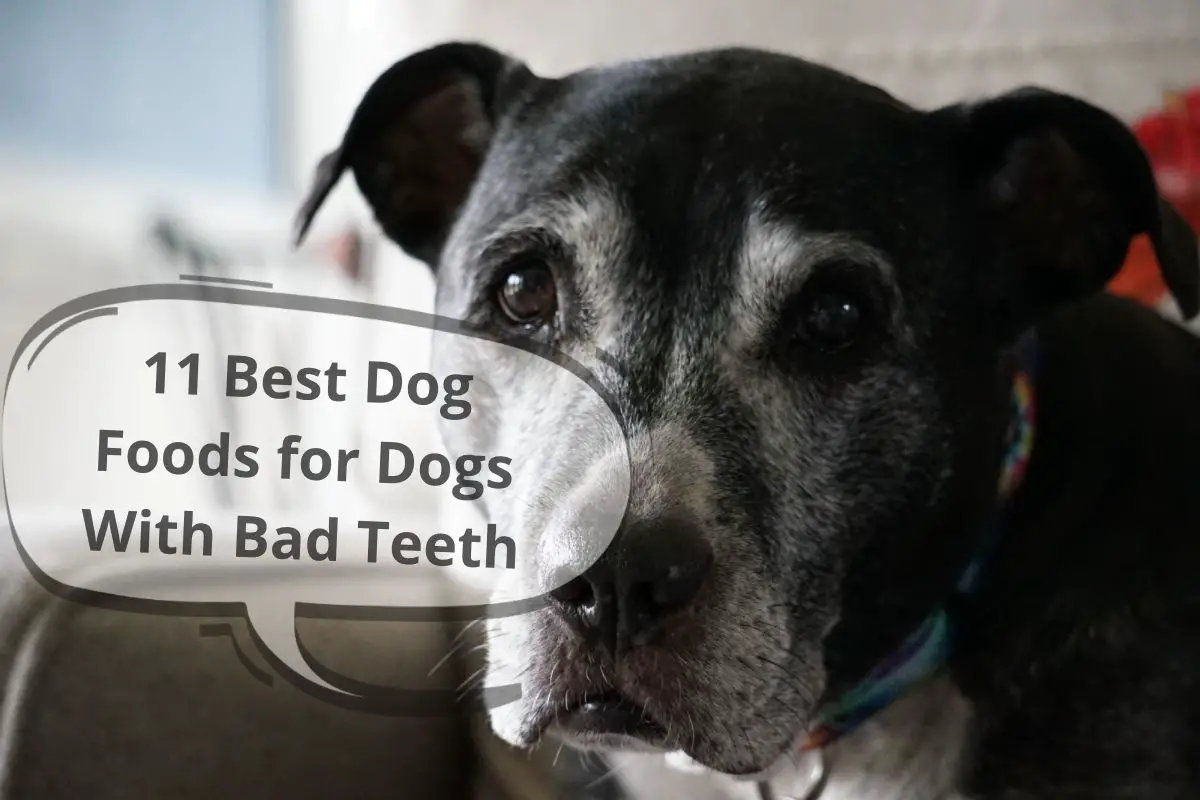This post contains affiliate links.
Black stool is one of the most concerning things to see from your dog. How do you know if your dog’s black stools are caused by their food?
You can know if your dog’s black stools are caused by their food by making sure the stool’s smell, shape, consistency, frequency, and size are normal. Make sure they haven’t eaten any food that can cause black stool, such as blueberries, chocolate, beets, grape juice, and black licorice.
It can be stressful when your dog has a black stool, and there are so many things you can check for that you are not sure where to begin. This article will describe in detail how to tell if your dog’s black stools are caused by their food and what other symptoms you should check.
Table of Contents
What Can Cause Black Stool in Dogs?
Melena is the term for when your dog has black, tarry stools. The black stool is usually digested blood that is present in your dog’s feces. Melena is usually caused by bleeding in the upper section of the gastrointestinal tract or blood present in the respiratory tract.
A few people may be confused about how blood shows up as black feces. When the blood is undigested, the iron is what turns red when it is exposed to oxygen. Blood that has been digested though has already been oxygenated. This causes the blood to come out as a black, tarry substance.
There are a few things that can cause melena in dogs:
- Food
- Tumors
- Kidney failure
- Drug toxicity
- Addison’s disease
- Parasites
- Liver disease
- Hormonal disorders
- Trauma
- Cancer
- Infections within the nose or lungs or gastrointestinal systems
- Ulcers
- Blood ingestion
- Adverse reaction to a medication
- Heady metal poisoning
- Hemorrhagic disease
What to Look for When Analyzing Your Dog’s Stool
There are a few important things you can look for when you are trying to figure out what is causing your dog’s abnormal stool.
Color
Your dog’s stool should be a medium to dark brown color. If your dog is eating a regular diet, their stool should be the same color every day. Before getting alarmed by a strange color in your dog’s feces, keep in mind that sometimes strange colors are due to things they eat that day.
For instance, if your dog eats a carrot, there might be some orange pigments, which would be nothing to be concerned about.
You should get alarmed, though, when there are abnormal pigments for several days. Let’s look at a few different colors and what they could mean.
- Black. This is usually a more severe issue and could mean digestive problems, bleeding, cancer, or a number of other things we will get more into later in the article.
- Red. If you only see a very small amount of red in your dog’s poop, it is nothing to worry about and should go away in a day or two. If you see a large amount of red, this could mean your dog has an infection or gastroenteritis, and you should consult with your vet.
- Yellow or Green. The more serious issues that can be related to these colors are infections, parasites, or irritable bowel syndrome. On the other hand, those colors may simply indicate a change in diet or that your dog has eaten a lot of grass. Orange or yellow poop could mean something more serious, like liver problems or biliary problems.
- Grey or White. Grey or white flecks in your dog’s stool can mean a variety of things ranging from worms, liver or pancreatic problems, allergies, or even skin disease.
Volume and Frequency
When your dog’s stool is smaller in size, that is usually an indicator of a good diet. Healthier food is easier for the dog to absorb into their body as nutrients, which makes the feces a smaller size. On the other hand, larger stools are not as healthy as a diet since the food is obviously not being absorbed as easily.
When it comes to frequency, it all depends on your dog. Some dogs go multiple times a day, and some go only once. As the owner, you’ll know what is normal for your dog. So when your dog who normally goes multiple times a day, starts going only once a day, there might be an issue you will want to investigate. If there are changes in the frequency of your dog’s stool, that may be an indicator of a digestive issue.
Shape and Consistency
As a rule of thumb, your dog’s feces should be a log shape. You should be able to pick it up and have it not leave residue on the ground. It should also be firm enough to pick up but not rock solid. If you find that your dog’s feces is liquidy one day, it shouldn’t be too concerning if it only happens once. That can be caused by some people-food or too many treats.
If you find that it is liquidy a few days in a row, that can mean an intestinal issue; furthermore, if your dog’s stool is pellet-shaped or feels very hard, that most likely means that your dog is dehydrated.
Mucus
You should not be alarmed when you see mucus or a slime-like substance in your dog’s stool. Having some mucus in the poop is actually ideal for the dog. This slime makes sure the colon is lubricated, which prevents diarrhea. There could be an issue, though, if there is a high amount of mucus in the stool. This could be a sign of colitis. Other conditions it could indicate could be parasites, a change in diet, infection, inflammatory disorders, or an allergic food reaction.
What Foods Can Cause Black Stool?
Seeing black stool from your dog can be very alarming, but it could just mean your dog ate something that caused their feces to turn black or a darker color than usual. Let’s look at a few specific types of food that can cause this:
- Beets
- Grape juice
- Blueberries
- Black licorice
- Chocolate
If your dog’s poop is black, make sure to investigate what they have been eating. It could be a number of these things. If you do find the culprit, make sure that the food is out of reach. If your dog has eaten chocolate (especially dark chocolate), make sure to call the vet. Chocolate can be very dangerous for your furry friends. The vet will either get you to induce vomiting or watch their behavior.
When Should I Be Alarmed About My Dog’s Black Stool?
If you are not sure what has caused your dog’s black stool, it can be hard to know when they are in need of a vet or not. The number one rule is to call your vet when you are unsure, but there are a few things you can investigate to see if you should be worried about black feces.
Irregular Stool
When checking their stool for other things than color, there are a number of things to keep in mind:
- Make sure that their feces smell normal. A healthy digestive system produces a good smelling poop (not literally). Their waste should have a potent odor to it, but it should not smell rotten (it should be similar to human feces in that sense).
- Make sure the shape is normal. As previously stated, it should be log-shaped and firm but not too firm. It should look similar to human waste.
- Another thing to check is that your dog is pooping an average amount. The literal amount your dog poops should be similar to what they are eating. If it is too much or too little, this could mean something more serious, along with the black color.
- If your dog has a black stool, make sure to investigate the poop to see if it matches what he usually eats. For instance, there should not be any odd colors or an abnormal amount of mucus. You should also watch out for parasites.
- Make sure your dog’s poop is the proper consistency.
- If your dog has both black stools and is not pooping regularly, this will be a sign of something serious.
Vomiting
Something else to look for when you see black stool is vomiting. Usually, when you first see your dog vomiting, you can leave it for a day and monitor them. But when they have a black stool to begin with, bring your furry friend straight to the vet if they are also vomiting. This could be a sign of a serious health issue.
If they are vomiting blood, that could be a sign of hemorrhagic disease. In that case, they will need immediate medical attention.
Excessive Thirst
Even though this is a symptom that is harder to detect, this can be representative of a more serious issue. If your dog is suddenly drinking more water than usual, this could be a sign of kidney or liver disease, diabetes, kidney or bladder infections, hormonal diseases, poisoning, or more.
Loss of Appetite
This is an easier symptom to notice in your dog. If you see that your dog is not eating as much as they usually do or are not eating at all, this could be a sign of something more serious as well. In normal circumstances, you would monitor your dog for up to 48 hours to study their eating habits. If they still do not eat after 48 hours, then seek medical attention immediately.
Although your dog already has a black stool and is not eating, the best thing to do would be to take them to the vet right away. Not only can that be a symptom of something major, but a loss of appetite can also cause severe nutritional deficiencies that would need to be addressed.
Frequent Urination
Another easy way to tell if your dog is experiencing more severe health problems is to monitor how frequently they pee. If they are urinating more often, bring them to the vet. This could be a sign of hormonal diseases, kidney or liver disease, kidney and bladder infections, poisoning, and a number of other issues.
Difficulty Breathing
If you hear any raspy breathing or coughing in your furry friend, they will need medical attention right away. Also, look out for loud breathing or panting. On top of that, you should also monitor their energy levels. Make sure your pet is not lethargic at all.
Weight Loss
This is more of a gradual symptom that you would notice after other symptoms become present. This would usually catch your eye if other symptoms happened to miss your attention in the first place. Weight loss can be a sign of gastrointestinal disorders. Black stool can also be a sign of that illness, so if you see weight loss on top of the black feces, your dog will need to go to the vet.
Other things you should watch for when your dog is losing weight is dehydration, constipation, lethargy, or chronic diarrhea.
Bruising
This may be another symptom that is hard to detect since some dogs have more fur than others. If your dog has a black stool, a good way to check if it is food-related or not is to check for bruises on your dog’s body. If you do find bruises, that could be a sign of internal bleeding or other severe health issues.
What to Keep in Mind When Monitoring Your Dog’s Black Stool
Even though the above list includes reliable ways to check if your dog’s black stool is dangerous or not, you should always be aware that there is no guaranteed way to make sure your dog’s black stool is fine. You can be attentive to the whole list and still miss a symptom in your dog. So if your dog does have a black stool, the best thing to do in any case is to contact the vet first, even with a simple phone call.
However, there may be cases when you can’t contact the vet right away. If this is the case, then make sure to monitor your dog as much as you can. Make sure they are behaving normally and have no other symptoms of illnesses other than their stool color. You can also try to locate any food that your dog could have eaten that could possibly contribute to the black color.
If your dog’s feces are normal in all other areas, just check their next stool. If it is back to the usual brown color, then it was most likely the food they ate.
How Do I Prevent Black Stool in My Dog(s)?
If you have already had a dog that has had black stool (and want to avoid future incidents) or if you are someone who likes to be prepared, there are a few general ways to prevent black stool in your dogs.
- Make sure they don’t have access to human foods like black licorice, chocolate, beets, grape juice, and blueberries.
- Keep up with your regular vet visits. It is easy to put off going to the vet unless something serious is going on with your dog, but the easiest way to prevent health issues is to bring your dog in for routine check-ups. This will most likely save you even more money.
- Make sure you are aware of what your dog is ingesting. Although this may seem impossible to constantly monitor, be intentional about putting things that could be toxic out of the way and off the floor. Another cause of black stool is heavy metal poisoning, and things like arsenic and lead are still used in household items today.
- Make sure to keep a note of what medications your dog is allergic to. Bad reactions to medication can cause internal bleeding, which can then take the form of black stool. Keep a record of all of the medications your dog can’t have to prevent this from happening.
- Have your dog maintain a healthy and high-quality diet. Another easy way to prevent health issues that can cause black stool is to invest in high-quality food for your furry friend. By just taking the time to give your dog the best diet you can provide, you will be lowering the chances of them getting a disease or contracting other health issues drastically.
Check out Feed Your Best Friend Better: Easy, Nutritious Meals and Treats if you want to put more effort into feeding your dog healthy and wholesome ingredients.
You can also read our book review here: Feed Yor Best Friend Better Book Review
Conclusion
You can check a few things to see if your dog’s black stool is caused by his food.
First of all, you can make sure they have not had access to any food that will make their stool black, such as chocolate, black licorice, blueberries, grape juice, or beets. Secondly, make sure they do not experience any other symptoms such as vomiting, loss of appetite, increased water intake, increased urination, weight loss, or bruises.
Lastly, make sure to investigate everything else about their stool other than the black color. The feces should be the proper size, amount, frequency, consistency, shape, and smell. If all of these things line up, then see how their next stool looks. If it is back to the normal brown color, then your dog is probably fine.
Related Articles
- The Ultimate Guide to Dog Poop (With Diet Examples)
- Does Canned Dog Food Cause Loose Stools? The Truth Revealed
- 13 Foods That Help Dogs Poop
- Do Raw Fed Dogs Poop Less? (We Find Out)
Sources
- PetMD: Black, Tarry Feces Due to Presence of Blood in Dogs
- PetMD: What to Do if Your Dog Eats Chocolate
- The Farmer’s Dog: Decoding Your Dog’s Poop
- Canna-Pet: What to Do If Your Dog’s Poop Is Black
- Preventative Vet: What Your Dog’s Poop Can Tell You About Their Health
- Dog Time: 7 Pet Symptoms You Should Not Ignore
- Royal Canin: Why is my dog losing weight?
- Wikipedia: Colitis
- Wikipedia: Melena
Mrdogfood.com is a participant in the Amazon Services LLC Associates Program, an affiliate advertising program designed to provide a means for sites to earn advertising fees by advertising and linking to Amazon.com. We also participate in other affiliate programs which compensate us for referring traffic.





